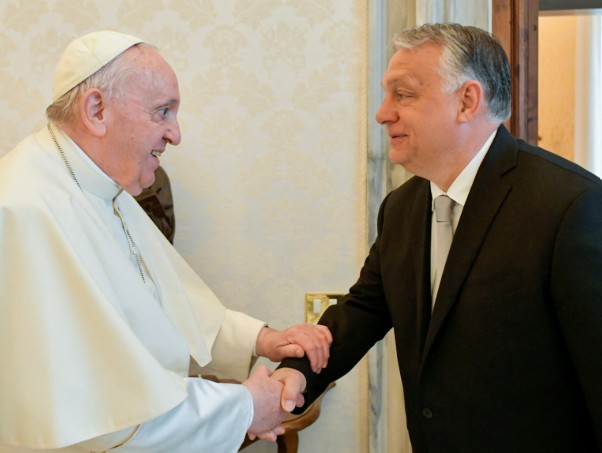Hungarian Prime Minister Viktor Orban issued a stinging critique of the European Union’s approach to Ukraine on Saturday, warning that the bloc is on a “war path” that risks escalating the conflict and destabilizing Europe’s future. His remarks came as global leaders gathered in Rome to mourn Pope Francis, with whom Orban shared an unusually close relationship in recent years.
Speaking to reporters outside the Hungarian embassy in Rome, Orban reflected on his multiple private meetings with Pope Francis more than with any other world leader during the late pontiff’s final five years. “We spoke about peace, identity, and sovereignty,” Orban said. “I do not know how much those talks influenced the Holy Father, but he listened. He understood the risks of globalist agendas pushing nations beyond their limits.”
The timing and content of Orban’s statement reignited speculation over whether his conservative-nationalist worldview may have had an influence on Pope Francis’s more recent critiques of militarization, economic imperialism, and power concentration in supranational institutions.
Orban’s comments were pointed: “The European Union is gambling with Ukraine’s future and with our own by blindly pursuing a military solution and rushing to integrate Ukraine by 2030. This is not a strategy for peace. It is a strategy for endless conflict.”
The Hungarian leader has long positioned himself as a dissenting voice within the EU, openly criticizing what he calls the “Brussels elite” for aligning too closely with Washington’s foreign policy while ignoring the costs to European citizens. He has consistently opposed sending lethal aid to Ukraine and has blocked several rounds of EU sanctions against Russia, arguing that they hurt European economies more than they impact Moscow.
Orban’s latest remarks come amid renewed efforts in Brussels to fast-track Ukraine’s EU membership process. European Commission President Ursula von der Leyen recently reaffirmed the 2030 timeline as “ambitious but necessary,” framing it as a symbol of unity against authoritarianism.
But for Orban, such moves signal recklessness. “You cannot absorb a country at war into the EU without destabilizing the union itself. This is ideological overreach disguised as diplomacy.”
While many European leaders regard Ukraine’s accession as a moral imperative in the wake of Russia’s invasion, Orban’s position continues to resonate with segments of the European electorate skeptical of deeper entanglements and the erosion of national sovereignty.
As the Vatican prepares for a new pope, Orban’s comments also raise questions about the role of the Catholic Church in global political discourse moving forward. With Pope Francis now laid to rest, observers wonder whether the next pontiff will continue in his path of moral advocacy on international affairs or chart a different course altogether.



